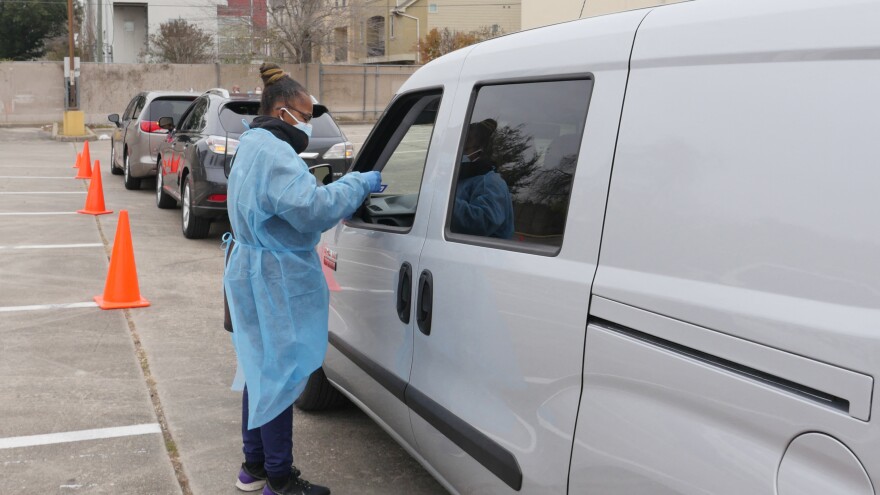Most people in the United States, including most children, have now been infected with the coronavirus, according to a new study from the Centers for Disease Control and Prevention.
At a briefing for reporters on Tuesday, the CDC's Dr. Kristie Clarke said so many people caught omicron over the winter that almost 60% of everyone in the U.S. now have antibodies to the virus in their blood.
That number is even higher for children — almost 75% of children 11 and younger have antibodies to the virus.
Clarke said the finding means many people have at least some immunity to the virus. But CDC officials stressed that people should still get vaccinated, because vaccination provides the strongest, broadest protection against getting seriously ill. Immunity provided by previous infection may or may not be as protective against severe disease.
The CDC also said that cases of COVID-19 continue to rise, going up 23% last week to 44,416 a day. Deaths continue a months-long decline to 314 a day, or 13% less than the week before. Hospitalizations are on the uptick at 1,629 a day, up 7% over the previous week, according to CDC Director Rochelle Walensky.
About 1.5% of the U.S. population lives in communities where there is a high prevalence of COVID-19 at the present time, with 6.5% in medium-prevalence areas and the rest (92%) in communities with low levels of COVID-19.
Copyright 2022 NPR. To see more, visit https://www.npr.org.






